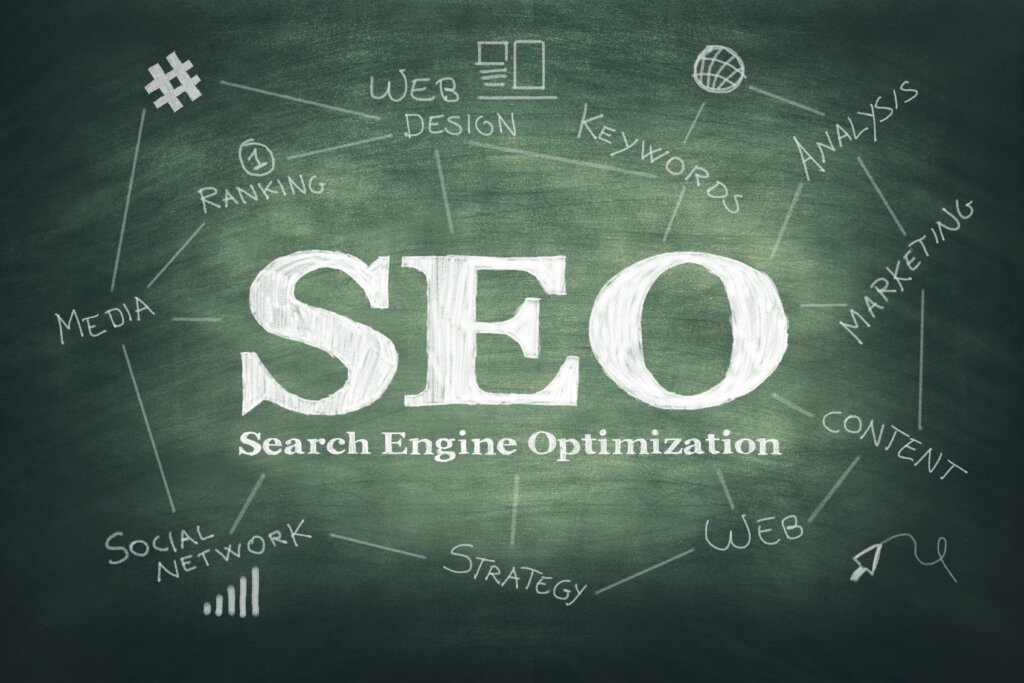In today’s digital marketplace, appearing at the top of search engine results is crucial for any business looking to succeed online. This is where White Label SEO comes into play. Simply put, White Label SEO is a partnership where one company provides SEO services to another company’s clients under the latter’s brand name. This approach allows businesses to offer additional services without having to invest in developing the expertise in-house.
SEO is an essential component of digital marketing, and with the ever-growing competition online, outsourcing these services through White Label SEO can be a smart move. This guide aims to give you a clear understanding of White Label SEO, its unique benefits, and how it can contribute to a business’s growth and profitability.
Throughout this article, we will cover everything from the basic definition of White Label SEO and how it stands apart from traditional SEO services to the benefits it offers to businesses, such as cost savings and brand enhancement. We’ll outline how these services typically work, what key components they include, and how to integrate them with other marketing strategies.
Additionally, we will guide you through the process of selecting a White Label SEO provider, what to look for, and pitfalls to avoid. Insightful case studies will shed light on these services’ real-world application and success. And finally, we’ll look toward the future, exploring emerging trends and preparing your business for what’s next in the field of SEO.
In closing, we’ll wrap up with a summary and encourage you to consider White Label SEO as a viable option for scaling your business. A call to action will follow, prompting readers to seek more information or to get started with White Label SEO services, and we’ll address some frequently asked questions to clear any lingering doubts. Let’s delve into what White Label SEO is all about and how it can benefit your business.

Section 1: Defining White Label SEO
Definition of White Label SEO
White Label SEO, sometimes referred to as private label SEO, is a form of search engine optimization (SEO) service where a provider delivers SEO services that are then branded and presented by another company as their own. In essence, a business can hire a specialized SEO firm to perform various SEO tasks—from keyword research, content creation, to link-building—and then resell these services to their clients under their brand name. The client never sees the original provider and any reports, analyses, or results are branded with the reselling company’s logo and color scheme.
This setup allows businesses, especially marketing agencies and web developers, to offer comprehensive SEO services without having to build a team of SEO experts or invest heavily in training and technology.
How White Label SEO Differs from Traditional SEO Services
Unlike traditional SEO services, which are provided directly by the service provider to the end client, White Label SEO is designed to be resold. Traditional SEO services often involve direct communication and consultation between the SEO provider and the client, making it clear who is doing the work.
With White Label SEO, the intermediary company remains the face of the service. There is no direct interaction between the White Label provider and the end-client; all communications, strategies, and reports go through the reseller. This approach allows the reseller to maintain customer relationships and project an image of a full-service provider, without revealing the third-party partnership.
The Role of White Label SEO in Business Growth
For businesses, particularly small to mid-size marketing agencies and web development firms, White Label SEO can be a significant growth driver. It enables companies to expand their service offerings quickly and cost-effectively, without the need for additional resources or specialized staff. This can lead to new revenue streams and higher profit margins, as they can mark-up the outsourced services to their end clients.
Moreover, it allows businesses to focus on their core strengths and competencies, whether that be design, development, or broader marketing strategy, while still delivering competitive SEO solutions. By tapping into the expertise of dedicated SEO providers, businesses can ensure high-quality service delivery that can lead to better customer retention, satisfaction, and continuous growth through referrals and reputation building.
Additionally, effective White Label SEO can help client businesses to grow through improved online visibility, traffic generation, and higher search engine rankings. As these end-clients grow and succeed, the demand for further marketing services may increase, thus amplifying the business for the reseller. White Label SEO, therefore, serves a dual purpose: facilitating service expansion for the reseller and supporting business growth for the client, creating a symbiotic relationship conducive to long-term success.
Section 2: Benefits of White Label SEO for Businesses
Cost-effectiveness and Resource Management
One of the most significant advantages of White Label SEO for businesses is its cost-effectiveness. By outsourcing SEO tasks to a specialized provider, businesses can avoid the costs associated with hiring in-house SEO experts, such as salaries, training, benefits, and continual professional development. They also save on the expense of acquiring expensive SEO tools and analytics software, as these are typically included in the service package offered by White Label SEO providers.
In addition to cutting costs, White Label SEO aids in resource management. Rather than overburdening existing staff with SEO tasks they may be unfamiliar with, businesses can allocate their internal resources more efficiently towards their areas of expertise and core business operations. This helps maintain productivity and can provide a better work-life balance for employees who might otherwise be stretched thin by additional responsibilities.
Expanding Service Offerings for Agencies
Marketing agencies, web developers, and other related service providers can significantly benefit from expanding their offerings to include SEO. Clients are often looking for comprehensive packages that deliver all their online marketing needs under one roof. White Label SEO allows agencies to provide a one-stop-shop for clients without having to build a dedicated SEO team from the ground up.
By adding SEO to their portfolio of services, agencies can become more competitive and appeal to a broader market. Additionally, they can increase customer retention by keeping clients within their ecosystem for all their digital marketing needs, reducing the risk of clients going to competitors for SEO services.
Enhancing Brand Consistency and Reputation
White Label SEO services can also contribute to an enhancement of brand consistency and reputation for reselling businesses. By delivering professional SEO results that improve a client’s online presence and search ranking, the reseller fortifies its brand image as a quality service provider. Moreover, the ability to present these high-level services as their own consolidates the perception of the agency being a full-service provider with deep expertise.
Furthermore, as client businesses begin to see the benefits of effective SEO through improved traffic and conversions, their satisfaction will likely lead to positive testimonials and reviews. This word-of-mouth marketing is invaluable in reinforcing the agency’s brand reputation.
A strong brand reputation solidified by successful outcomes for clients not only helps to attract new business but also lends agencies the authority and credibility needed to command higher prices for their services. As the White Label SEO partner works in the background, the reselling agency remains the hero in the eyes of the client, taking credit for the success achieved through the outsourced work, which can significantly bolster their reputation in the industry.
Section 3: How White Label SEO Works
Overview of the White Label SEO Process
White Label SEO begins with a business, often a digital marketing agency or web development firm, identifying the need to offer SEO services to their clients without investing in an in-house team. Once the business partners with a White Label SEO provider, the process typically follows several key steps:
1. Initial Consultation: The agency collaborates with the White Label SEO provider to understand the range of services offered, establish communication protocols, and determine the branding guidelines for deliverables.
2. SEO Audit and Strategy Development: The White Label provider conducts a comprehensive SEO audit of the end client’s website and develops a customized strategy based on the audit’s findings, industry best practices, and the end client’s goals.
3. Execution of SEO Services: The provider then carries out the agreed-upon SEO services, which might include technical SEO, content creation, keyword optimization, and link-building efforts, to name a few.
4. Reporting and Analysis: Throughout the SEO campaign, the White Label SEO provider prepares branded reports and analyses, which the reseller agency can present directly to their clients. These reports typically include metrics like organic traffic, keyword rankings, and conversions.
5. Ongoing Optimization: SEO is an ongoing process, so the White Label SEO provider continues to optimize and adjust strategies based on the performance data, industry changes, and evolving client objectives.
Key Components of White Label SEO Services
White Label SEO encompasses a range of services, each essential to an effective SEO campaign. These typically include:
Keyword Research: Identifying the most relevant and valuable search terms that the end client’s target audience uses. This process involves analyzing search volume, competition, and user intent to develop a focused keyword strategy.
On-Page Optimization: Optimizing elements on the client’s website to improve search engine visibility and user experience. This includes meta tags, headings, content quality, and site structure.
Technical SEO: Addressing the technical aspects of the website to ensure it is accessible to search engines and provides a good user experience. This covers site speed, mobile-friendliness, indexing, and crawlability, among other factors.
Content Creation and Optimization: Developing high-quality, keyword-rich content that engages visitors and signals relevance to search engines.
Link Building: Acquiring high-quality backlinks from reputable and relevant websites to boost the authority and credibility of the client’s website in the eyes of search engines.
Local SEO: For businesses serving specific geographic areas, optimizing the online presence for local search, including local listings, Google My Business profiles, and local citations.
Integration with Existing Marketing Strategies
An advantageous feature of White Label SEO is its flexibility in integrating with the end client’s existing marketing strategies. White Label SEO providers will collaborate with the reselling agency to ensure that the SEO services complement and enhance other marketing efforts, such as social media marketing, pay-per-click advertising, email marketing campaigns, and content marketing efforts.
This integration ensures a cohesive and comprehensive approach that amplifies the impact across all channels, leading to a unified brand message, increased traffic from multiple sources, and improved overall marketing performance. By aligning the SEO strategy with broader marketing objectives, businesses can achieve a synergy that drives stronger results and delivers a greater return on investment for their clients.
Section 4: Choosing the Right White Label SEO Provider
Factors to Consider When Selecting a White Label SEO Partner
Selecting the right White Label SEO provider is critical to ensure the quality of service that you offer to your clients. Here are several factors to consider when making your choice:
1. Expertise and Experience: Look for a provider with a strong track record of SEO success. Take the time to review case studies, client testimonials, and portfolio examples. Providers with experience in specific industries may offer additional insights and strategies tailored to those sectors.
2. Service Offerings: Evaluate the range of services the provider offers. Ensure they can cover all aspects of SEO, including technical SEO, on-page optimization, content creation, link building, and analytics.
3. Communication and Reporting: Clear and consistent communication is vital. Your provider should offer regular, detailed reporting that can be branded with your agency’s details. They should also be able to explain their strategies and results in a way that’s understandable to both you and your clients.
4. Scalability: As your client base grows, you’ll need a provider that can scale up their services to match your needs. Discuss their capacity to handle an increasing volume of work without a drop in service quality.
5. White Label Support: Ensure that the provider has a robust system in place for white labeling their services, including customizable reports and other client-facing materials that feature your agency’s branding.
6. Reputation: Research the provider’s reputation within the industry. Look for any accreditations, awards, or associations that can vouch for their credibility and professionalism.
Red Flags and Common Pitfalls to Avoid
When choosing a White Label SEO provider, be wary of the following red flags:
1. Guaranteed Rankings: No SEO provider can guarantee specific rankings, as search engines are complex and ever-changing. Providers making such promises may not be using best practices.
2. Lack of Transparency: If a provider is not willing to share their methods or provide detailed reporting, this is a concern. Transparency is key to trust and accountability.
3. One-Size-Fits-All Approach: Beware of providers offering cookie-cutter solutions. Effective SEO should be customized to fit each client’s unique needs and goals.
4. Low Prices that Seem Too Good to Be True: While cost-effectiveness is important, extremely low prices can indicate low-quality work that could harm your clients’ SEO in the long term.
5. Poor Communication: If a provider is not responsive or communicative during the preliminary conversations, this pattern is likely to continue and can create issues down the line.
Tips for Effective Collaboration with a White Label SEO Provider
To foster a successful partnership with your White Label SEO provider, consider the following tips:
– Establish clear lines of communication from the outset. Decide on regular check-in calls, preferred communication channels, and response times.
– Set clear expectations and service-level agreements (SLA) to define the quality of work, turnaround times, and other obligations each party must fulfill.
– Be transparent about your clients’ needs and goals, providing as much detail as possible to enable the White Label provider to tailor their services effectively.
– Make sure you have a designated contact person or account manager who understands your business and can navigate any issues promptly.
– Coordinate with the SEO provider to ensure their efforts align with your overall marketing strategies and that any changes in client strategy are communicated quickly.
Section 6: Future of White Label SEO
Emerging Trends in White Label SEO
The future of White Label SEO is poised to evolve alongside the dynamic landscape of search engine technology and digital marketing practices. Here are some emerging trends to watch out for:
1. Increased Emphasis on AI and Machine Learning: White Label SEO providers are likely to leverage AI and machine learning more extensively to analyze search patterns, predict trends, and personalize SEO strategies for better performance.
2. Greater Focus on User Experience (UX): Google and other search engines continue to prioritize user experience. White Label SEO services will increasingly incorporate UX into their offering, optimizing site speed, mobile-friendliness, and overall design for better engagement and rankings.
3. Voice Search Optimization: With the rise of smart speakers and virtual assistants, voice search optimization will likely become a more prominent component of SEO strategies, influencing keyword research and content creation.
4. SERP Feature Optimization: Beyond traditional organic rankings, optimizing for featured snippets, local packs, and other SERP features will become a more integral part of SEO services to maximize visibility.
5. Sustainability and Ethical SEO: As consumers and businesses become more conscious about sustainability and ethics, White Label SEO services will need to align with these values, ensuring practices that are environmentally friendly and ethically sound.
How Technology is Shaping the Future of White Label Services
Technological advancements continue to shape the White Label SEO landscape in several ways:
1. Automation in SEO Tasks: Automation tools can handle repetitive tasks efficiently, such as site audits, backlink analysis, and report generation, allowing more time for strategy and creative endeavors.
2. Advanced Analytics and Data Visualization: New tools and platforms will offer deeper insights and more intuitive data visualization, enabling White Label SEO providers to make data-driven decisions and illustrate complex information effectively to clients.
3. Integration with Other Digital Tools: Seamless integration with CRM systems, marketing automation tools, and other software will enhance the ability of White Label SEO services to provide coordinated campaigns across multiple channels.
Preparing for Changes and Staying Ahead in the SEO Industry
To stay ahead of the curve in the SEO industry, businesses and White Label SEO providers should focus on the following:
1. Continuous Learning and Adaptation: Stay informed about search engine algorithm updates, emerging industry best practices, and shifts in consumer behavior to adjust strategies promptly.
2. Investing in Training and Development: Regularly train your team and provider staff in new SEO tools and technologies to maintain a competitive edge.
3. Collaborative Innovation: Encourage a culture of innovation where your team and your White Label SEO provider work together to explore new methodologies and experiment with emerging trends.
4. Embracing Flexibility: Be prepared to pivot and adapt your offerings. As new platforms and mediums (e.g., augmented reality, virtual reality) gain traction, SEO strategies will need to be flexible enough to accommodate these changes.
5. Proactive Approach: Anticipate future developments by following thought leaders, attending industry conferences, and participating in forums and discussions.
By understanding these emerging trends and how technology is influencing White Label SEO, businesses can prepare for what lies ahead. It’s important to remain agile and proactive, adapting to new developments to maintain a competitive advantage and offer the most relevant, effective SEO services to clients.
FAQs
Common questions related to white label SEO.
1. What is White Label SEO?
White Label SEO is a service where an SEO provider offers their services under another company’s branding. It’s designed for agencies that want to offer SEO services to their clients without developing these capabilities in-house.
2. How does White Label SEO benefit my digital marketing agency?
White Label SEO allows you to expand your service offerings, provide expertise in SEO without the corresponding overhead, and grow your client base through improved SEO offerings, all under your own brand.
3. Can I customize White Label SEO services to my clients’ needs?
Yes, reputable White Label SEO providers offer customizable SEO strategies tailored to the specific needs and goals of your clients.
4. Will my clients know that I am outsourcing SEO?
No, if done correctly, your clients will not know that you’re outsourcing your SEO services. Reports and communications will be branded with your agency’s name and logo.
5. What kind of reporting can I expect from a White Label SEO provider?
You can expect detailed, branded reports covering various SEO metrics, such as keyword rankings, organic traffic, backlink profiles, and other relevant KPIs.
6. Is White Label SEO ethical?
Yes, White Label SEO is a legitimate and ethical business practice as long as you are transparent with your clients about the services you provide and deliver quality SEO work.
7. What should I look for in a White Label SEO provider?
Look for providers with experience, a strong portfolio, transparent communication, scalability, comprehensive service offerings, and a clear understanding of your business needs.
8. How do I integrate White Label SEO services with my existing offerings?
Your White Label SEO provider should work closely with you to integrate their services into your current offerings, adding SEO as a seamless extension of your operations.
9. Can White Label SEO be scaled as my agency grows?
Yes, one of the advantages of White Label SEO is scalability. A good provider should be able to handle an increasing workload as your client base grows.
10. How can I ensure the quality of the SEO work provided?
Maintain open lines of communication with your White Label SEO provider, regularly review their reports, ask for updates on strategies and results, and ensure they stay updated with the latest SEO best practices.
11. What is the difference between White Label SEO and Private Label SEO?
White Label SEO and Private Label SEO are essentially the same concept; both refer to SEO services that are rebranded by a reselling company to offer them as their own. “Private label” is just an alternative term used in some industries.
12. How long does it take to see results from White Label SEO services?
Results can vary depending on the competitiveness of the industry, the current state of the website, and the chosen strategies. Generally, it can take three to six months to begin seeing significant improvements.
13. Who performs the actual SEO work in a White Label arrangement?
The actual SEO work is performed by the White Label SEO provider’s team. This team usually comprises SEO specialists who handle all the technical work behind the scenes.
14. Do White Label SEO providers also deal with client communication and liaising?
Typically, the reseller handles all direct client communication and serves as the intermediary between the White Label SEO provider and the client.
15. Are there any long-term contracts involved with White Label SEO services?
Contract terms can vary by provider. Some may offer month-to-month services, while others might require longer-term commitments. It’s essential to clarify this with potential providers before partnership.
16. Can White Label SEO services be customized for small local businesses?
Absolutely. White Label SEO providers often offer local SEO strategies that are specifically tailored for small businesses aiming to improve their online visibility within local search results.
17. Will I get dedicated support for my agency from a White Label SEO provider?
Many top-tier White Label SEO providers offer dedicated account management and support to ensure a smooth partnership and efficient handling of your agency’s needs.
18. How do I ensure that my clients’ data is secure with a White Label SEO provider?
Security is paramount. Ensure that your provider has stringent data protection policies in place, including secure channels for data sharing and confidentiality agreements.
19. What if my clients need services beyond SEO, such as social media or PPC?
Some White Label providers offer an array of digital marketing services that include social media management, PPC, email marketing, and more, allowing for a comprehensive package under a single White Label solution.
20. How are changes in Google’s algorithm handled by White Label SEO providers?
Reputable White Label SEO providers stay abreast of all significant algorithm changes and adjust their strategies accordingly to ensure ongoing compliance and effectiveness of their SEO services.
21. Can White Label SEO services be integrated with other software like CRM and marketing automation tools?
Yes, many White Label SEO providers can integrate their services with your existing CRM and marketing automation tools to streamline processes and align SEO efforts with other sales and marketing activities.
22. What kind of input is needed from my agency to get started with White Label SEO services?
Your agency will typically need to provide information about your clients’ businesses, including their industry, target market, objectives, and any previous SEO work done. The more context you give, the more tailored the SEO services can be.
23. How does billing work with White Label SEO services?
Typically, the White Label SEO provider bills your agency directly, and then your agency bills the clients. This allows your agency to package the services and set pricing according to your business model.
24. Can I mark up the cost of White Label SEO services when reselling to my clients?
Yes, you can set your prices for the SEO services you resell. This allows you to achieve a margin that is viable for your business while providing value to your clients.
25. How does the White Label SEO provider stay invisible to my clients?
The White Label provider stays behind the scenes by providing all reports, analyses, and communications without their branding, enabling you to present them as your own. It’s crucial for these materials to be customized with your agency’s branding to maintain this invisibility.
Conclusion
Throughout this comprehensive guide, we’ve delved into the essence of White Label SEO and explored its pivotal role in modern business and digital marketing. We started with a clear definition of White Label SEO, how it differs from traditional SEO services, and its intrinsic value in promoting business growth.
Key takeaways include recognizing the cost-effectiveness and resource management benefits that White Label SEO brings to businesses. It grants agencies the capability to expand their service offerings without substantial upfront investments. We also emphasized the enhancement of brand consistency and overall reputation that accompanies positive outcomes from proficient SEO strategies.
Understanding the operational side of White Label SEO, we acknowledged the fundamental components that reputable providers should offer, such as keyword research, on-page optimization, technical SEO, content marketing, and link building. These services are designed to align with and amplify existing marketing strategies.
When it comes to selecting the right provider, we discussed essential factors, including experience, service range, and transparency. It’s equally important to be aware of red flags, such as unrealistic guarantees or poor communication, and to employ practices for effective collaboration, ensuring a harmonious and productive relationship with your White Label SEO partner.
Looking ahead, we touched upon the trends shaping the future of White Label SEO, including technological advancements such as AI, machine learning, and an increasing emphasis on user experience. Keeping abreast of these developments will enable businesses to prepare for and adapt to the ever-evolving digital marketing landscape.
In conclusion, White Label SEO is not just a service; it’s a strategic asset for agencies looking to scale their business, retain clients, and bolster their market position. By leveraging the expertise of specialized providers, agencies can offer comprehensive, top-tier SEO services under their own brand, paving the way for growth and success in a competitive digital world.
Whether you’re looking to complement your existing services or want to provide your clients with a more robust digital marketing solution, exploring White Label SEO options could be the key to unlocking your business’s full potential. The investment in such a partnership can lead to enhanced service quality, increased client satisfaction, and ultimately, business scalability. It’s an opportunity worth considering for any forward-thinking agency eager to succeed in the digital age.
About The Author
Dave Burnett
I help people make more money online.
Over the years I’ve had lots of fun working with thousands of brands and helping them distribute millions of promotional products and implement multinational rewards and incentive programs.
Now I’m helping great marketers turn their products and services into sustainable online businesses.
How can I help you?




